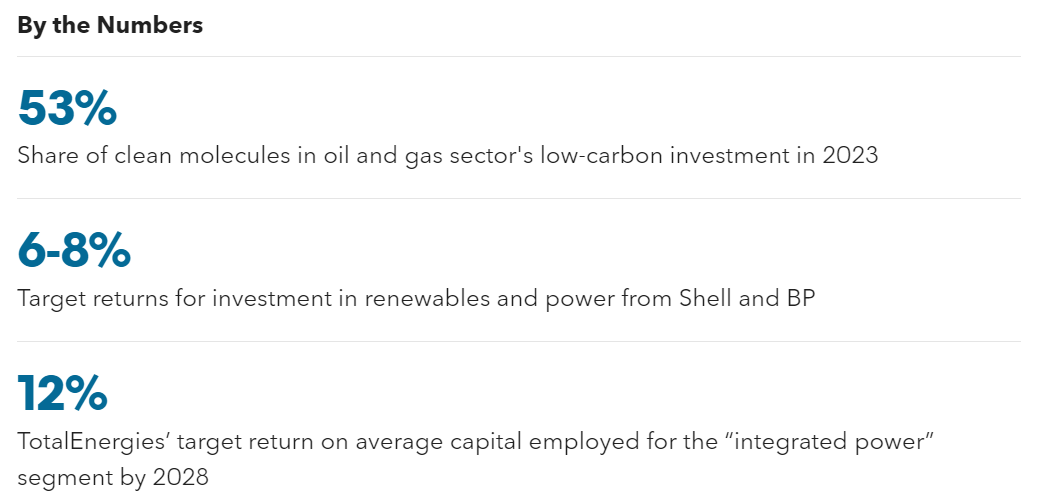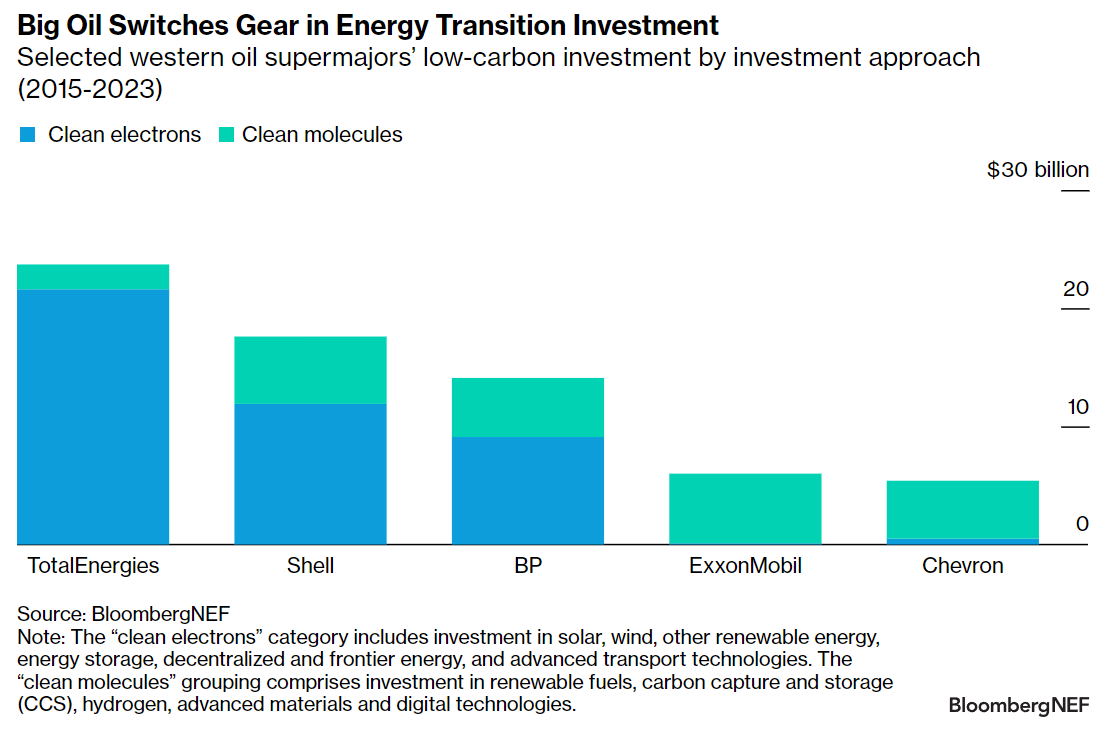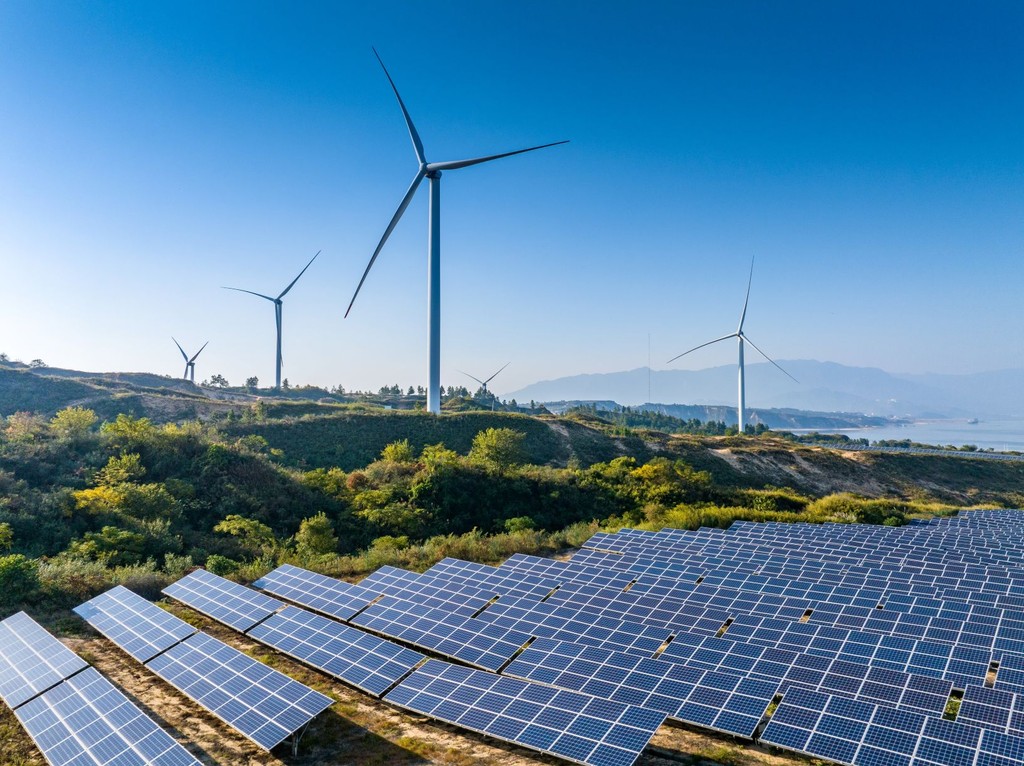By Luxi Hong, Downstream Oil and Chemicals, BloombergNEF
The oil and gas sector is shifting away from renewables and power in its decarbonization efforts, according to BloombergNEF’s latest analysis of the energy transition investment trends in the industry. Investment in renewable power and electrification fell for a second consecutive year in 2023, though these areas once dominated the sector’s energy transition spending.
Low-carbon molecule technologies, such as carbon capture and storage, renewable fuels and advanced materials are becoming the new darlings of the industry. Supportive policies, greater synergy with oil firms’ existing operations, and the hunt for assets with higher returns are the drivers of their growing popularity.


- Renewable energy has historically been at the helm of the oil and gas sector’s low-carbon investment. Starting from 2022, however, this dominance has dwindled, with investment in technologies such as renewable fuels, carbon capture and storage (CCS) and advanced materials hitting new highs.
- Leaders in adopting the clean molecules approach – which includes investments in technologies that either reduce carbon emissions from fossil-fuel production or produce lower-carbon alternatives – are mostly located in North America, namely the US and Canada.
- Policy plays a central role in dictating oil firms’ low-carbon investment in the US. Tax credits, funding opportunities, and tightened emission reduction regulations have made both CCS and renewable fuels attractive low-carbon technologies for oil companies to explore.
- Transforming from “Big Oil” to “Big Energy”, European oil majors have historically targeted renewable energy as a central pillar of their transition strategies. However, the focus on clean electrons – such as renewable energy and electrification – has diminished in recent years.
- BP and Shell led the change with their accelerating investment in clean molecules. The lower returns of renewable energy projects are possible drivers behind the adjustment of the two oil companies’ renewables strategies.
- TotalEnergies stands out from the pack with its firm position on expanding its renewable power portfolio. In the latest strategy update, the French oil major still aims to build an integrated power business with a footprint throughout the entire electricity value chain.
BNEF clients can access the full report here.






